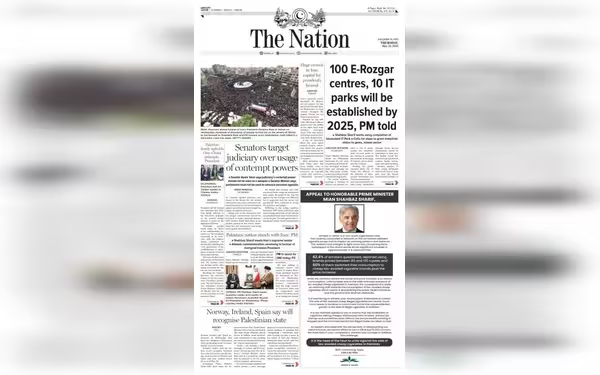Thursday, July 4, 2024 07:28 PM
Divisional Commissioner of Sukkur Imposes Ban on Paddy Cultivation
- Ban on paddy cultivation to conserve water resources
- Deputy commissioners tasked with monitoring rice cultivation activities
- Emphasis on sustainable agricultural practices and responsible water use
 Image Credits: The Nation
Image Credits: The NationThe Divisional Commissioner of Sukkur has imposed a ban on paddy cultivation for three months to conserve water resources and protect neighboring crops. This decision emphasizes sustainable agricultural practices and responsible water use for the well-being of the farming community.
In a recent development, the Divisional Commissioner of Sukkur, Fayyaz Hussain Abbasi, has taken a decisive step by imposing a ban on the cultivation of paddy across the division for a period of three months. This decision comes in the wake of a recommendation put forth by Deputy Commissioner Khairpur, Syed Ahmed Fawad, highlighting the need to conserve water resources and protect other crops.
Paddy, a semi-aquatic crop, thrives in heavy and clay soils that can retain water for extended periods. However, the excessive presence of water in paddy fields poses a threat to the roots of neighboring crops, leading to potential destruction. To mitigate this risk, the deputy commissioners of Sukkur, Khairpur, and Ghotki districts have been tasked with closely monitoring rice cultivation activities in their respective areas.
Furthermore, they have been instructed to promptly dismantle any existing nurseries to prevent further paddy cultivation, ensuring the preservation of water resources and safeguarding the interests of local farmers.
The ban on paddy cultivation in Sukkur division underscores the importance of sustainable agricultural practices and the responsible use of water resources. By implementing these measures, the authorities aim to protect the environment and promote the well-being of the farming community. It is crucial for all stakeholders to cooperate in adhering to these regulations for the greater good of the region.













